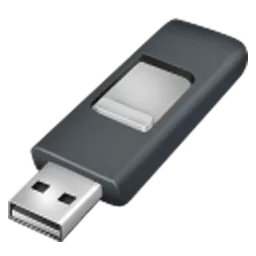Rufus 2024 is a small utility that helps format and create bootable USB flash drives. It can be especially useful for cases where:
- you need to create USB installation media from bootable ISOs (Windows, Linux, UEFI, etc.)
- you need to work on a system that doesn't have an OS installed
- you need to flash a BIOS or other firmware from DOS
- you want to run a low-level utility
Despite its small size, Rufus provides everything you need!
Non exhaustive list of ISOs Rufus is known to work with:
Arch Linux, Archbang, BartPE/pebuilder, CentOS, Damn Small Linux, Fedora, FreeDOS, Gentoo, gNewSense, Hiren's Boot CD, LiveXP, Knoppix, Kubuntu, Linux Mint, NT Password Registry Editor, OpenSUSE, Parted Magic, Slackware, Tails, Trinity Rescue Kit, Ubuntu, Ultimate Boot CD, Windows XP (SP2 or later), Windows Server 2003 R2, Windows Vista, Windows 7, Windows 8, Windows 10, Windows 11, etc.
Oh, and Rufus is fast. For instance it's about twice as fast as UNetbootin, Universal USB Installer or Windows 7 USB download tool, on the creation of a Windows 7 USB installation drive from an ISO. It is also marginally faster on the creation of Linux bootable USB from ISOs.
What's New
Rufus 4.3 release notes
- Add support for Rock Ridge symbolic links preservation when NTFS is used
- Add an exception to enforce NTFS for Linux Mint's LMDE
- Add an expert feature to restrict a Windows installation to S Mode
- Fix persistence support for Debian 12 when booted in BIOS mode
- Fix a regression that prevented the opening of .vhd images
- Update UEFI:NTFS to report a more explicit error on bootmgr security issues
- Improve the search for conflicting processes by running it in a background thread
- Improve support for Slax Linux
Rufus 4.2 release notes
- Add detection and warning for UEFI revoked bootloaders (including ones revoked through SkuSiPolicy.p7b)
- Add ZIP64 support, to extract .zip images that are larger than 4 GB
- Add saving and restoring current drive to/from compressed VHDX image
- Add saving and restoring current drive to/from compressed FFU (Full Flash Update) image [EXPERIMENTAL]
- Fix a crash when trying to open Windows ISOs, with the MinGW compiled x86 32-bit version
- Fix an issue where ISOs that contain a boot image with an 'EFI' label are not detected as bootable
- Increase the ISO → ESP limit for Debian 12 netinst images
- Ensure that the main partition size is aligned to the cluster size
Previous release notes
- Add SHA-1 and SHA-256 x86 acceleration on CPUs that support it (courtesy of Jeffrey Walton)
- Add an option to disable BitLocker device encryption in the Windows User Experience dialog
- Add a cheat mode (Ctrl-P) to preserve the log between sessions
- Fix potential media creation errors by forcing the unmount of stale WIM images
- Fix potential access errors in ISO → ESP mode by forcing Large FAT32 formatting
- Fix user-specified label not being preserved on error/cancel
- Fix some large SSD devices being listed by default
- Fix processing of Rock Ridge CE fields
- Work around the use of Rock Ridge symbolic links for Linux firmware packages (Debian)
- Remove the ISO download feature on Windows 7
- Note: This is the last version of Rufus that can run on Windows 7


